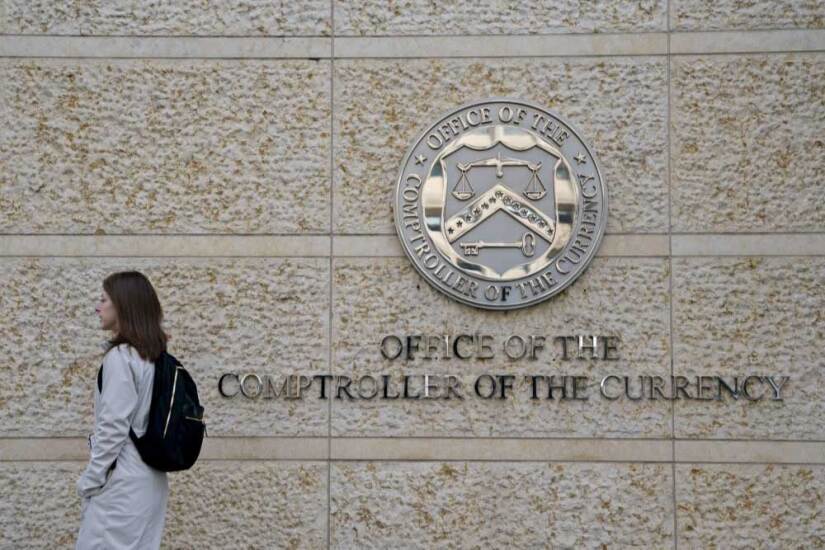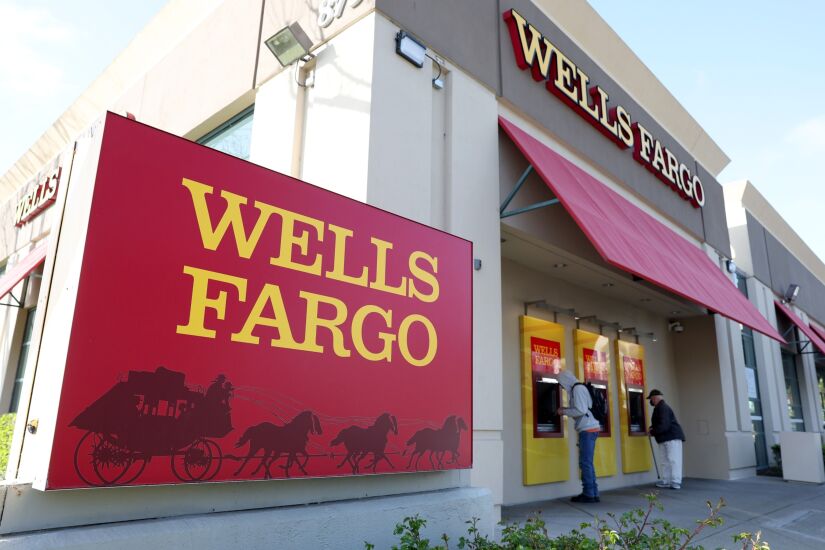In this month's roundup of top banking news:

Corrected: Regions Bank unwittingly invited a surge in check fraud last year
Regions Financial, which
In response to an analyst's question late last year about the spike in check fraud, Regions Chief Financial Officer David Turner said that the Birmingham, Alabama-based bank "tweaked something to try to become more customer-friendly in terms of the period of time that we hold a deposit. Because if you hold deposits too long, you start getting complaints."
"We opened the door too wide, bad people came rushing in, and we didn't close the door timely enough," Turner added in his comments at the BancAnalysts Association of Boston Conference in November. "That's on us."

Truist plans to shrink branch network by 4% in March
The closures come amid Truist's $750 million cost-cutting initiative, which was
It has also

Fight between OCC and upside-down Texas bank boils over
The spat spilled into public view on Jan. 17, when the OCC released documents arguing that the bank has fallen into "troubled condition" due to its flopped pandemic-era bond investments.
The bank plowed cash into ultra-safe bonds during the COVID-19 pandemic — only to realize those bonds

Fintechs contend with banking-as-a-service fallout
"It doesn't matter if you're the problem child," said Jason Henrichs, founder and CEO of community bank consortium
The same could be said of players in the banking-as-a-service space. Financial institutions including

Why gambling addiction is suddenly a problem for banks
Minnick was 18 years old when he started betting, convinced that his extensive knowledge of sports would make him a winner. The New Jersey native moved from daily fantasy sports to traditional sports betting to casino games. Eventually, he'd find himself sitting at an Atlantic City poker table while simultaneously peeking at his cell phone, where an online slot machine was spinning.
In late 2022, Minnick was in recovery from his gambling addiction when he had a relapse, which was fed by cash advances. It started with a sports bet, which led to a visit to Parx Casino in Bensalem, Pennsylvania.

Bank of America takes temporary $1.6B hit over use of short-lived rate
BofA was perhaps the leading backer of Bloomberg's Short Term Bank Yield Index, or BSBY, rate, which was designed to play a major role in
But regulators were either skeptical of BSBY or openly combative about its adoption. After the rate

Fiserv wants a special purpose bank charter. What does this mean?
The bank technology seller has applied for a merchant acquirer limited purpose bank charter in Georgia. That would allow Fiserv to control the entire payment process, including authorizing, settling and clearing debit and credit card transactions. Fiserv normally uses bank partners as part of payment processing.
In an email on the night of Jan. 12, Fiserv's public relations office said the company is "taking this step in response to recent market changes, as third-party financial institutions that have traditionally provided access to the card networks as sponsor banks increasingly focus on other areas of their business." Fiserv's public relations office added that the company has no intention to become a traditional financial institution or regional bank, saying Fiserv will continue to partner with financial institutions that want to remain active in the market as acquiring sponsors.

Wells Fargo gives $1,000 bonus to its lower-paid employees
The $1.9 trillion-asset company notified U.S. workers in January that they are eligible for the special cash award if they earned a salary of less than $75,000 last year, and their total cash compensation was less than $85,000. In addition, employees must meet certain criteria related to job performance and conduct.
Some international employees are also eligible, though workers based in India and the Philippines will qualify only if their salary is $25,000 or less.

HSBC takes aim at Revolut and Wise
The launch of Zing places HSBC in a market that banks have largely conceded to companies like Revolut and Wise. But as these nonbanks add more traditional banking and payment services, large banks are more inclined to compete with them — both to defend their existing businesses and to find new audiences.

CFPB's overdraft proposal exempts the small banks that need it most
The
Given small banks' outsize role in overdraft, some experts are questioning the CFPB's rationale, especially considering





